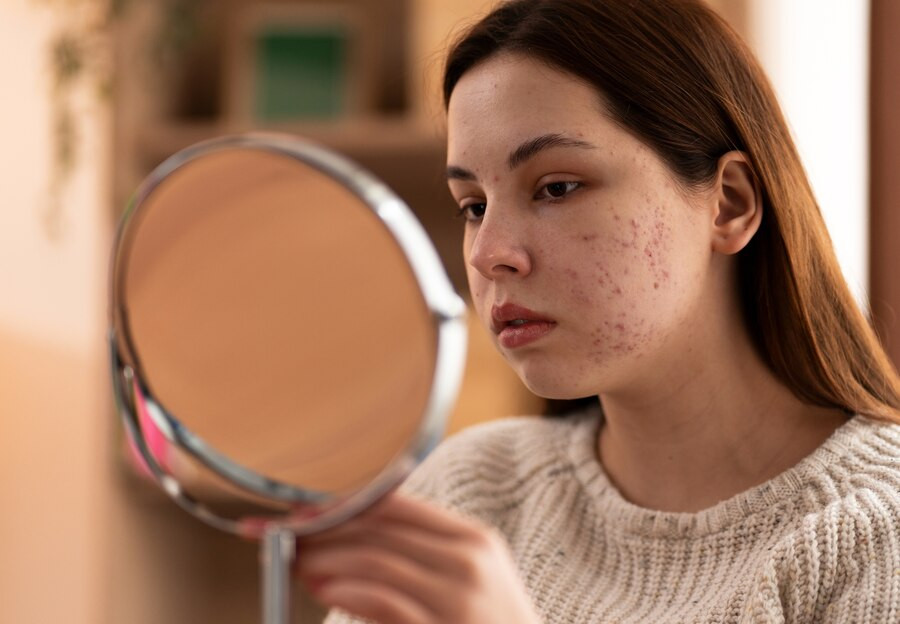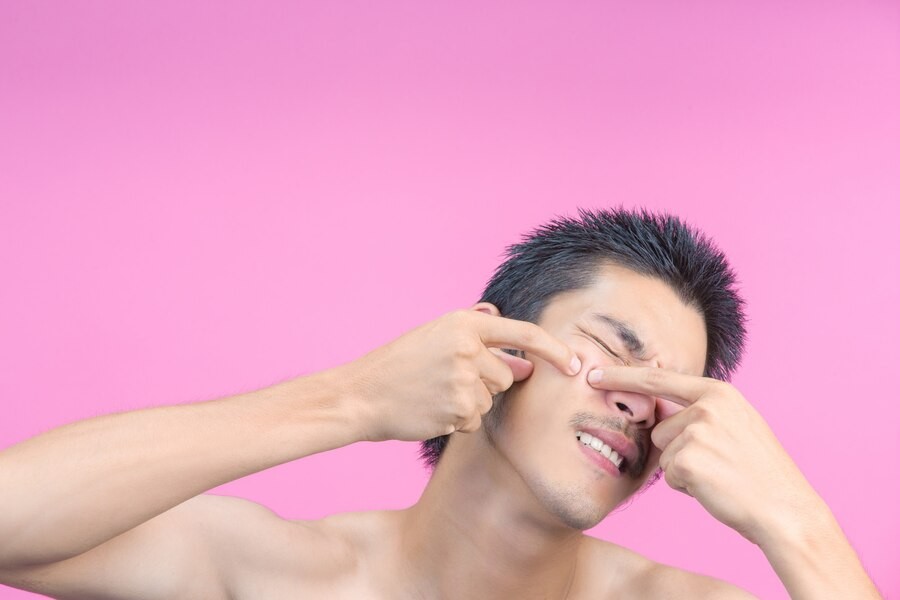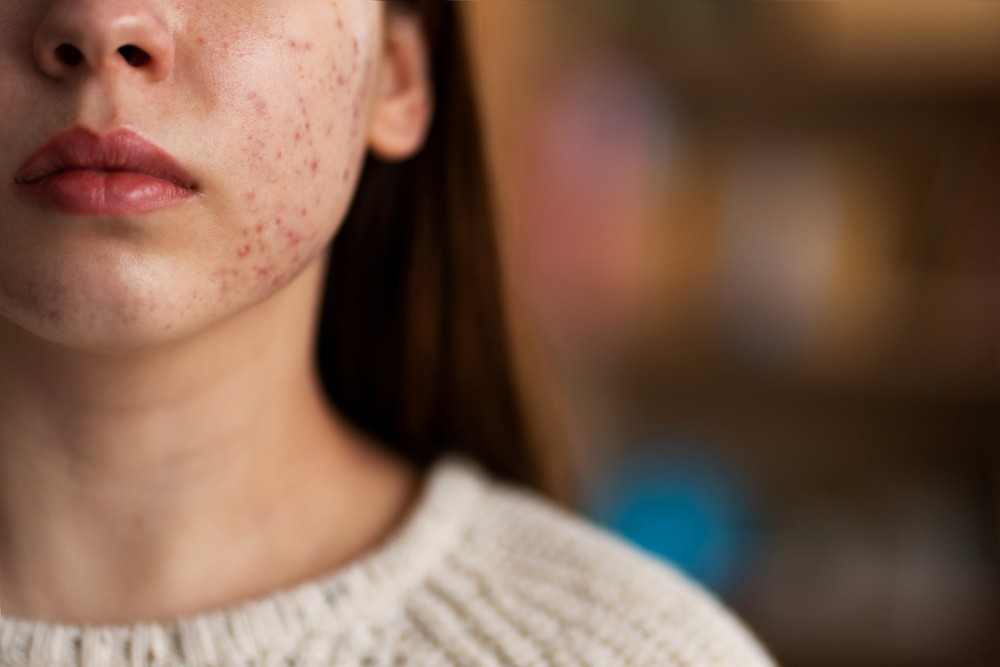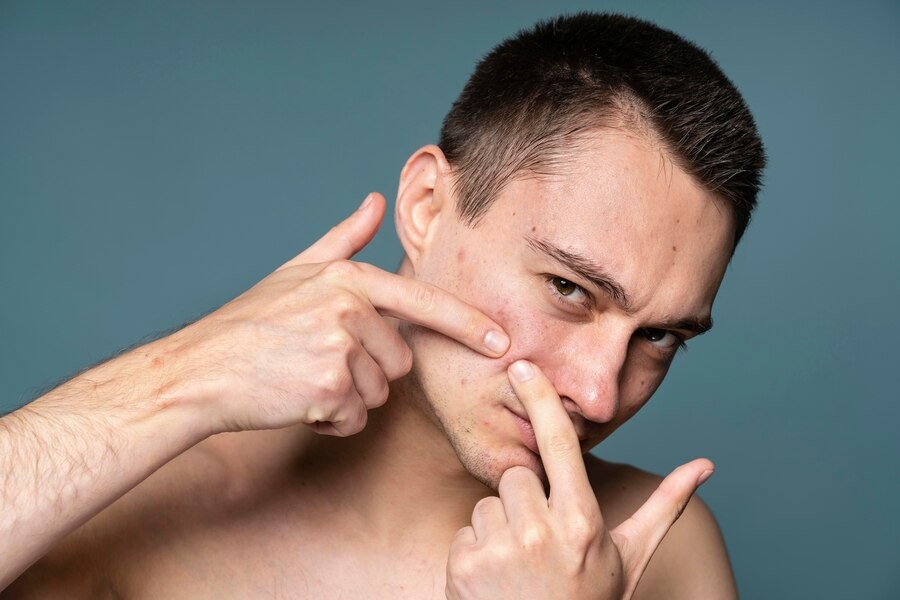Isotretinoin dikenal sebagai obat jerawat untuk mengatasi masalah jerawat yang parah, biasanya lebih dari sekedar benjolan kecil yang hilang dalam hitungan hari. Orang dengan jerawat parah biasanya memiliki kista besar atau benjolan meradang yang menutupi sebagian besar kulit.
Jerawat yang parah juga dapat menyebabkan pembengkakan, jaringan parut, dan lesi yang keras serta nyeri. Isotretinoin biasanya diberikan secara oral untuk mengurangi keparahan jerawat apabila jerawat tidak merespons pengobatan lain. Namun, obat ini dapat memiliki efek samping yang serius. Pemakaiannya juga di bawah pengawasan ketat dokter karena termasuk jenis obat yang kuat.
Apa itu Isotretinoin
Isotretinoin digunakan untuk mengobati jenis jerawat parah atau disebut juga jerawat vulgaris. Jerawat ini biasanya tidak merespons pengobatan lain dan cukup mengganggu karena dapat menyebabkan rasa panas, kemerahan, gatal, dan peradangan.
Isotretinoin merupakan turunan vitamin A yang bekerja dengan beberapa cara untuk mengatasi jerawat parah, di antaranya:
- Mengurangi produksi sebum berlebih
- Mengubah cara sel-sel kulit tumbuh dan mengelupas
- Mengurangi efek antibakteri Propionibacterium acnes secara tidak langsung yaitu dengan mengurangi sebum sebagai sumber makanan bagi bakteri
- Mengurangi peradangan, kemerahan dan pembengkakan yang sering terjadi akibat jerawat parah
Isotretinoin biasanya diberikan dalam bentuk kapsul yang diminum secara oral. Dosis dan durasi pengobatan tergantung pada kondisi dan respons terhadap pengobatan. Pengobatan bisa berlangsung selama 15-20 minggu, namun juga bisa lebih lama jika diperlukan.
Baca Juga: Produk yang Sebaiknya Tidak Digunakan Bersamaan dengan Retinol
Efek Samping Isotretinoin
Meskipun merupakan pengobatan yang efektif untuk mengatasi jerawat parah, isotretinoin memiliki beberapa efek samping yang perlu diwaspadai.
Efek samping umum isotretinoin, di antaranya:
- Hidung kering dan mimisan
- Bibir kering dan pecah-pecah
- Mata kering
- Kulit kering
Efek samping serius dari penggunaan isotretinoin, di antaranya:
- Perubahan pertumbuhan tulang di mana beberapa tulang berhenti tumbuh lebih awal khususnya pada orang yang masih dalam masa pertumbuhan
- Gangguan pendengaran dan telinga berdenging
- Peningkatan trigliserida
- Peningkatan tekanan di sekitar otak yang ditandai gejala pusing, mual dan muntah, sakit kepala parah, serta perubahan penglihatan
- Muntah atau nyeri hebat di bagian atas perut yang menjalar ke punggung
- Diare berdarah atau diare parah
- Kerusakan hati
- Perubahan suasana hati, lekas marah, depresi
- Kulit menjadi sangat sensitif terhadap sinar matahari
- Reaksi alergi parah
- Reaksi kulit parah seperti kulit merah atau ungu yang menyakitkan, ruam merah datar, lepuhan di kulit, mulut, hidung, dan alat kelamin
- Pikiran untuk bunuh diri atau kematian
- Jaringan parut di kornea yang menyebabkan sulit melihat di malam hari
- Penurunan kepadatan tulang yang meningkatkan risiko patah tulang
- Masalah otot di mana otot-otot mengalami kerusakan yang bisa menjadi serius
- Peningkatan kadar gula darah
Baca Juga: Efek Samping Retinol dan Cara Mencegahnya
Mengonsumsi isotretinoin dengan aman memerlukan pemantauan ketat dari dokter dan pemahaman yang baik tentang potensi efek samping. Selalu konsultasikan dengan dokter terkait penggunaan isotretinoin. Hindari mengubah dosis dan jadwal konsumsi tanpa petunjuk dari dokter. Laporkan pula gejala-gejala serius yang dirasakan seperti nyeri otot, sakit kepala parah, nyeri perut, perubahan penglihatan, perubahan suasana hati dan tanda-tanda infeksi yang dialami.
Memiliki pertanyaan lain seputar masalah jerawat? Anda bisa memanfaatkan layanan konsultasi kesehatan dengan mengunduh aplikasi Ai Care melalui App Store atau Play Store.
Mau tahu informasi seputar penyakit lainnya? Cek di sini, ya!
- dr. Monica Salim
Cleveland Clinic (2024). Isotretinoin Capsules. Available from: https://my.clevelandclinic.org/health/drugs/19186-isotretinoin-capsules
American Academy of Dermatology Association (2023). Isotretinoin: The Truth About Side Effects. Available from: https://www.aad.org/public/diseases/acne/derm-treat/isotretinoin/side-effects
Chelsey Mclntyre, PharmD (2024). Isotretinoin - Uses, Side Effects, and More. Available from: https://www.webmd.com/drugs/2/drug-6661/accutane-oral/details
Ann Pietrangelo and Cathy Lovering (2021). Managing Severe Acne: Do’s and Don’ts. Available from: https://www.healthline.com/health/severe-acne/what-to-do-and-avoid
American Academy of Dermatology Association. What Can Clear Severe Acne?. Available from: https://www.aad.org/public/diseases/acne/derm-treat/severe-acne
Amita H. Sutaria, et all (2023). Acne Vulgaris. Available from: https://www.ncbi.nlm.nih.gov/books/NBK459173/
Dr. Amanda Oakley, et all (2021). Acne vulgaris. Available from: https://dermnetnz.org/topics/acne-vulgaris
Cleveland Clinic (2023). Rhabdomyolysis. Available from: https://my.clevelandclinic.org/health/diseases/21184-rhabdomyolysis











